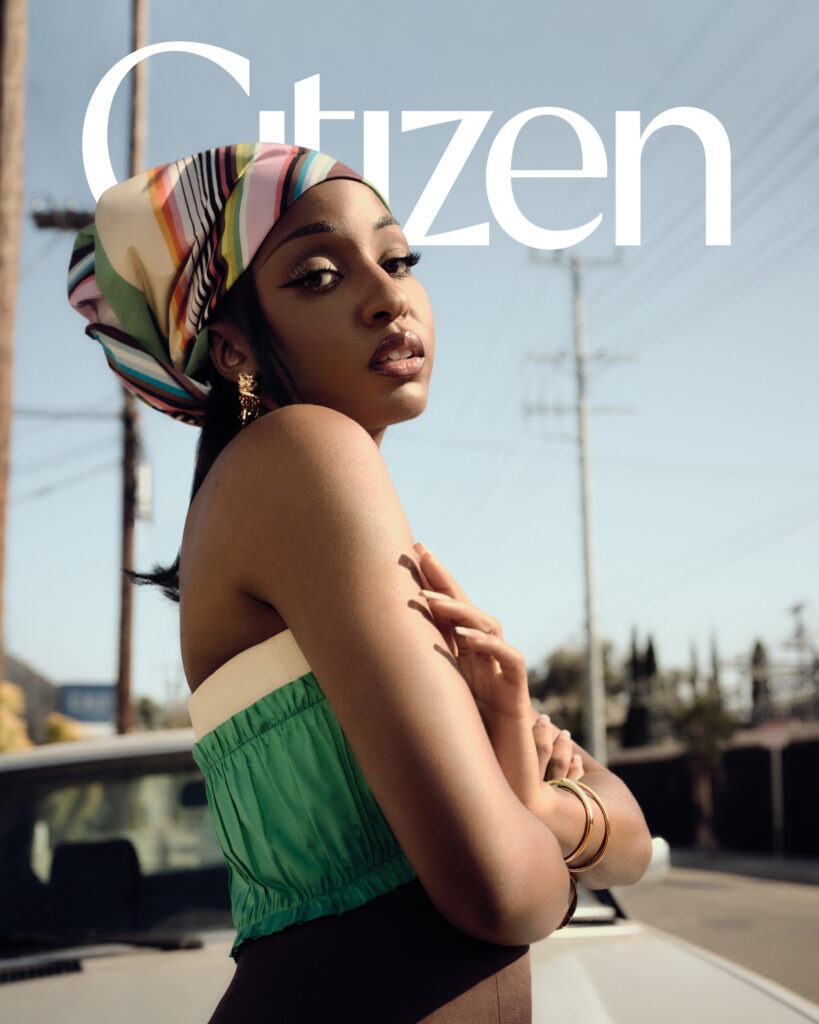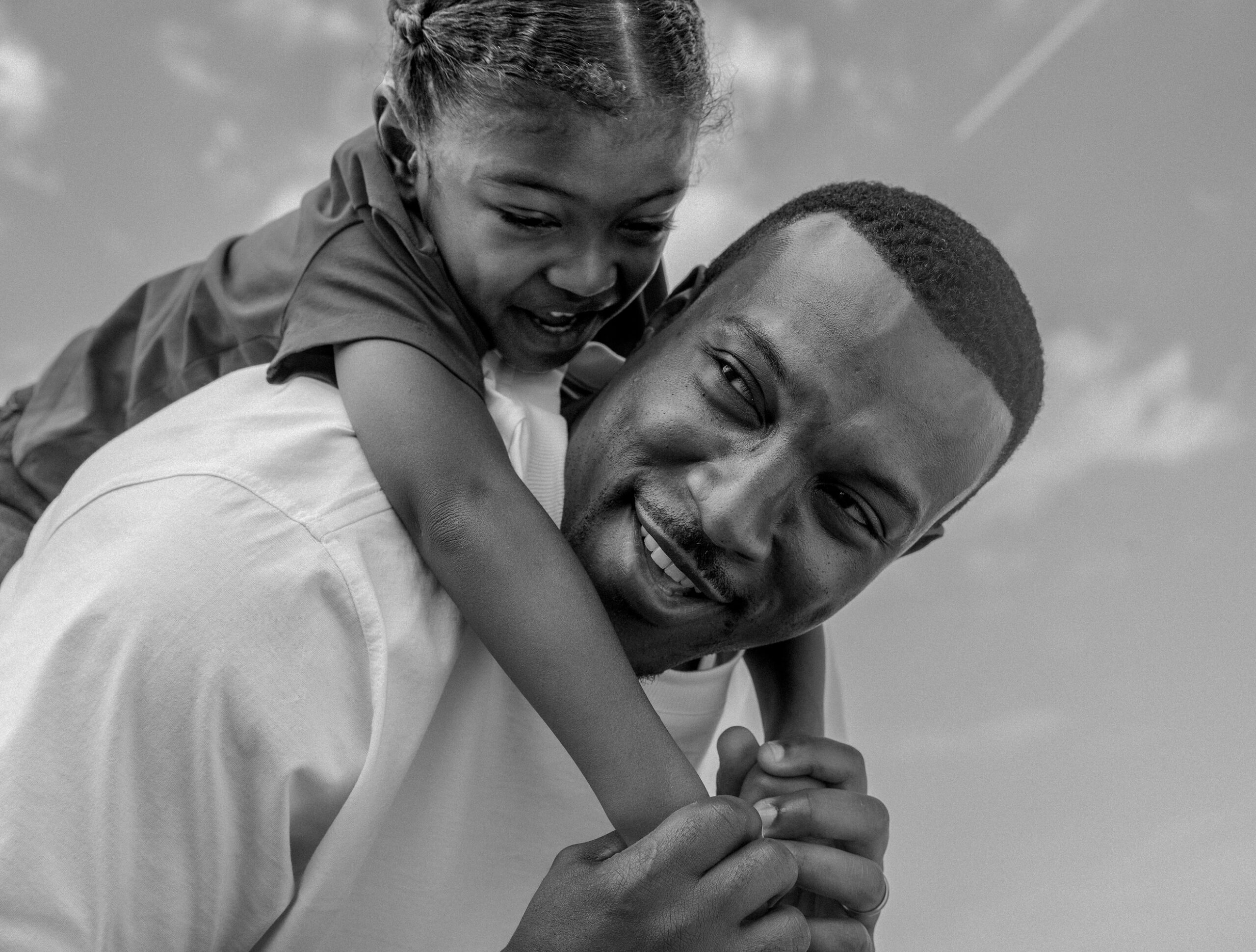
An Icon In Many Ways
An Icon In Many Ways
Author, Jeffrey Boakye, asks Ashley Walters questions on fatherhood, music, and a career spanning decades— questions he has waited to ask of a figure rooted deeply in modern British Black culture.
Text by Jeffrey Boakye
Photography by Henry Jay Kamara
Issue 002
Question: What is an icon?
Is it someone who has achieved legendary success in their chosen field? Or someone who has managed to thrive in multiple fields, establishing themselves as a credible figure across various lanes? Is it someone who has won the respect of a generation, putting out work that you can’t deny, with consistency, integrity, and passion? Is it deeper? Is an icon a person who somehow transcends a given moment, continuing to stay relevant from one era to the next? Or is it a person who, in an intimate way, commits themselves to a person, people, an idea?
These are the thoughts that ran through my head when I sat down to think of questions for Ashley Walters. Actor. MC. Director. Business owner. Father. I realised that for a whole generation of us, Ashley Walters has been and continues to be a Black British cultural icon, and I say that with no hint of exaggeration, nor in the flippant way that the word is thrown around as of late. He is an icon. No cap, as the kids might say.
“I’ve personally grown in tandem with the flourishing of modern Black Britain.”
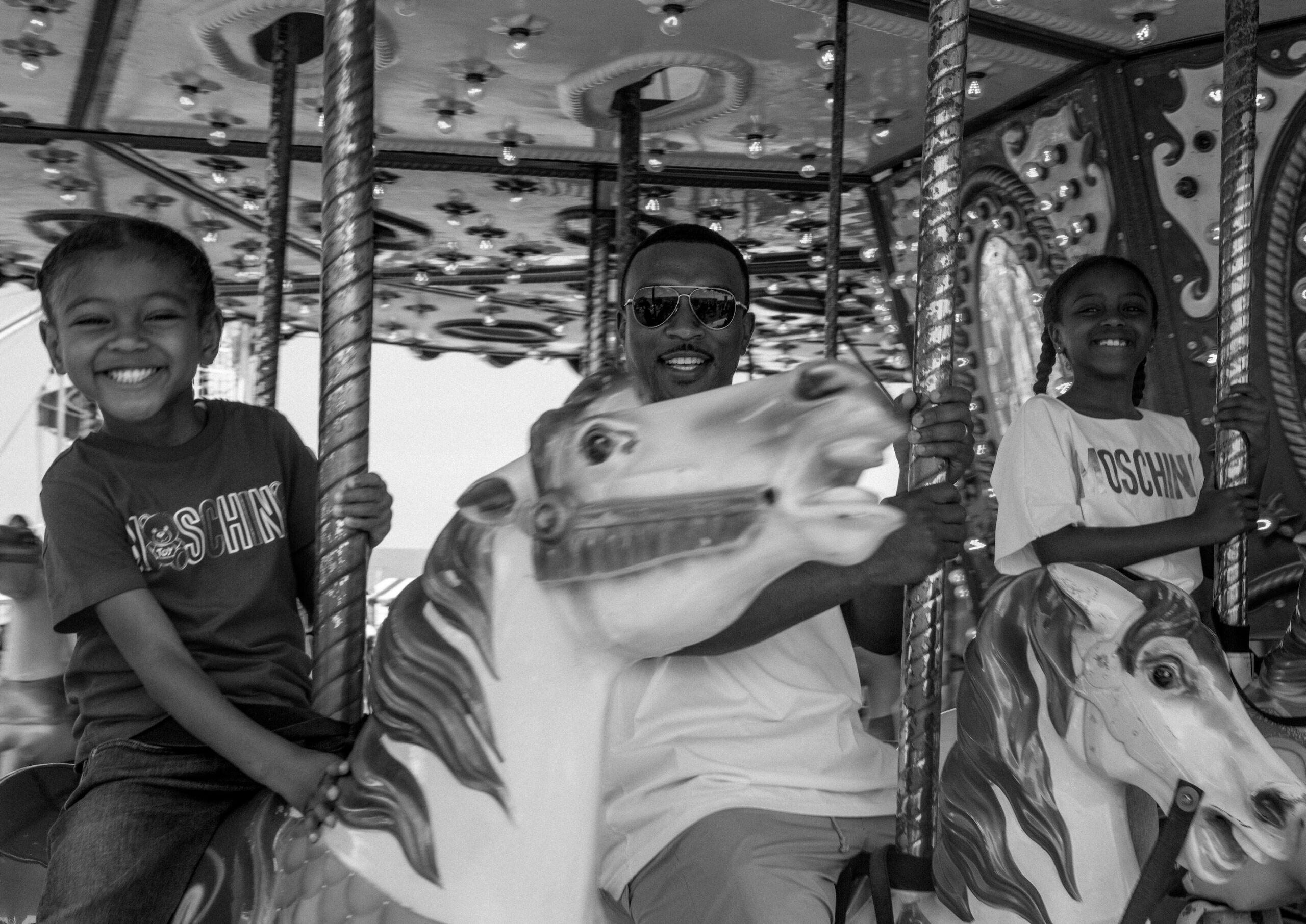
I can safely be described as a ‘geriatric millennial’ in his 40th year of life, born and raised in Brixton, South London. I’ve personally grown in tandem with the flourishing of modern Black Britain. Ashley Walters is a huge part of this journey—from his role in So Solid Crew, the barrier-breaking, genre-defining UK Garage collective, all the way to his portrayal of Dushane in the acclaimed urban drama series Top Boy, here is an artist who sits at the heart of modern Black Britain. Then, as a father myself, a Black father, I know instinctively that this, less visible, role is one that also requires the word “icon” and the definition of the word in its most meaningful sense. It is a role that is at the core of his identity. At a time when Black masculinity continues to be misunderstood, stereotyped, feared, and often attacked, it’s important to shed light on how Ashley has grown into this particular part of his identity, away from the public, even as he is still pushing boundaries, not least of all with his recent EP ‘Testing the Walters’. This work is a collection of new songs that showcase Ashley’s versatility, musicality, and deep reflection, alongside the ability to spit bars that I remember so well from pirate radio days. Here’s someone who has achieved so much, and clearly has much more to do.
My mind was made up: we were going to talk about everything – music, acting, fatherhood, politics…But first, I wanted to know if the
Q: People, especially young black men, look at your life your career, and the moments with your family that you share on social media, and see them as #goals. How do you feel about being a role model for fathers in that way?
A: I’m honest, I didn’t know I was a role model. But, if any of what I do or what I put out there about my relationship with my kids, can help anyone else, then I’m happy for that. Being a father is tough, one of the toughest things, if not the toughest thing I’ve ever done. You’re learning every day. There is no moment in that role that you are comfortable because as your kids grow, you’re learning something new all the. One thing I’ve realized, even though I should have known it already, is that it never stops. [Your kids] don’t become 18, just leave and that’s the end of it. The job continues. I wish I still had my dad now, and I definitely call upon my mum a lot…I think you have to try and keep your kids as close to you as possible for as long as you can.



Q: Not to be too familiar, but your kids span in age quite a bit. So, you’ve kind of experienced all the stages of fatherhood over time. Do you feel like the role of “father” for you has changed over time as you’ve grown? What has always remained constant?
A: Yeah, being a father has changed for me. I guess to put it quite simply: in the beginning—I had my first son when I was 17 years old and I was a kid myself. I had no understanding of what being a man was, I had no real wealth of experience under my belt, so my kids were my friends. I actually used to say that a lot of the time, “I treat my kids like my friends,” and I was proud of that then. But, growing up and seeing maybe how that approach affected my eldest kids and the relationship that I have with them now, I’ve kind of changed my stance…with my younger kids. And, as much as giving them love, support, and friendship or whatever, I’m also quite aware that I need to give them routine and discipline and, stuff like that as well.
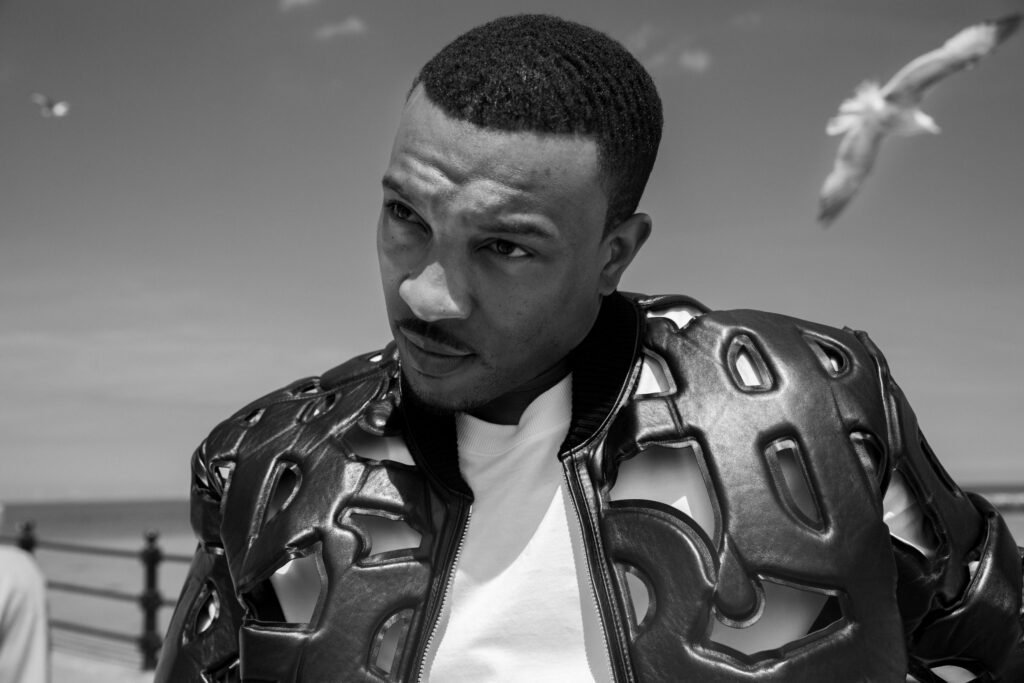
Q: Do the different worlds you operate within—music, acting, fatherhood, business, and health seep into each other?
A: I work on dealing with everything, each day as it comes, one day at a time. I try not to get too consumed by everything. Balance is definitely needed and sometimes [the things I do] can help each other in a certain way. But self-care is crucial and we try as much as we can as a family, and myself personally, to get away and kind of put business and stuff to the side. But then at the same time, my work is my hobby, so it can seep into all aspects of what I do.
Q: Your acting CV is long and varied (Grange Hill!) What’s the secret?
A: I don’t know. Just never feeling like I’m on top. Always appreciating the fact that there’s more to learn, always wanting to be teachable, and always trying to reinvent myself and try to learn new things. I guess that’s my key to kind of being in the game for so long. That may not work for everyone, but humility is a big part of my everyday life because I just feel like the minute you feel like you’re on top, where else can you go? You always have to feel like there’s more to gain, there’s more to learn.
Q: The track ‘BLM’ is a proper manifesto: Do you consider yourself political?
A: No, I do not consider myself political, but the bottom line is I am in a society that is governed by politics, rules, authority, or whatever, and it affects your life, it affects a person’s everyday life. So there’s no way that even if you don’t know that you’re political, as you would put it, you are because you’re dealing with the changes and the rules, from government and from the people that govern us.
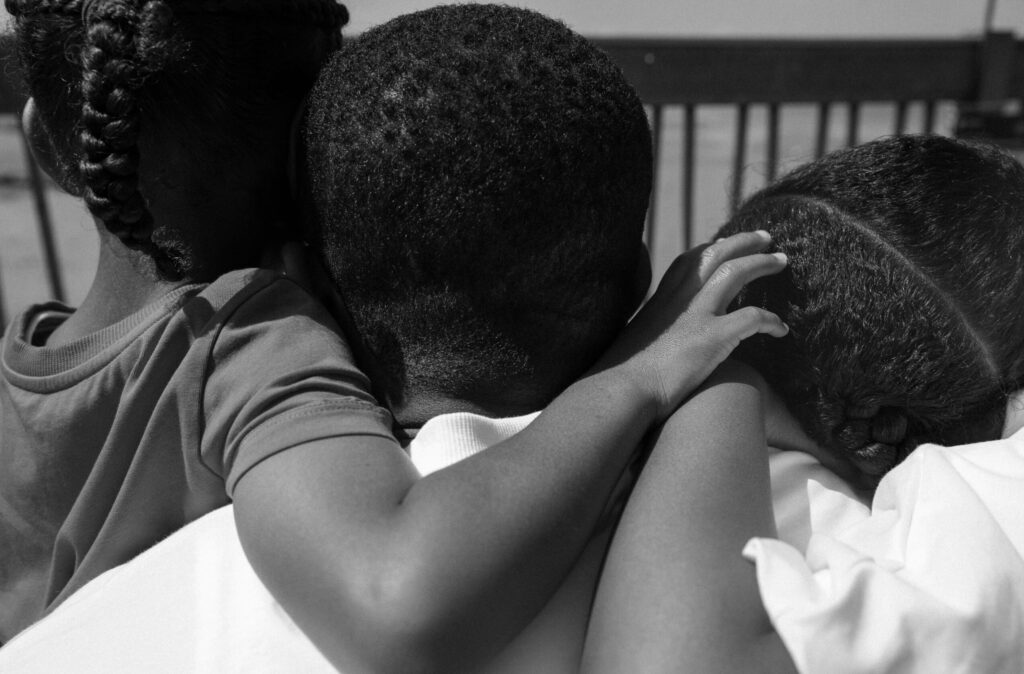
So I guess being a black man in the UK, you’re kind of forced into politics by some of the things that happen that are not necessarily positive. How you deal with them makes you who you are. And one of the ways that I deal with some of those emotions and my feelings about some of the things I don’t like seeing is to put them in my music. Hence, BLM.
Q: What are your hopes for the next generation? For your kids, for young actors or rappers, or creatives?
A: My hopes for the next generation are that they have it easier than I did. I guess that’s the aim. We’re all chipping away at what this world is and how this world functions in order to make life a bit easier for the people that come up after us, and hopefully what will be what happens for my kids as well. I guess that’s what I’ve been doing throughout my career.
It’s all about challenging yourself. Whatever’s in front of me, I may not have experienced before or may not have navigated before. You have to be brave enough to go through it and you might not always reap the rewards and benefits from that, but the door may be slightly more agile for the next person that comes through and that’s what inspires me, that’s what motivates me on a daily basis.
Photography: Henry Jay Kamara
Styling: Leah Abbott
Makeup: Alexis Day
Photo assistant: Cleo Lim
Producer: Anton John-Baptist
Ashley wears t-shirt and jacket by Burberry, shorts by Maharishi, Air Jordans sneakers

